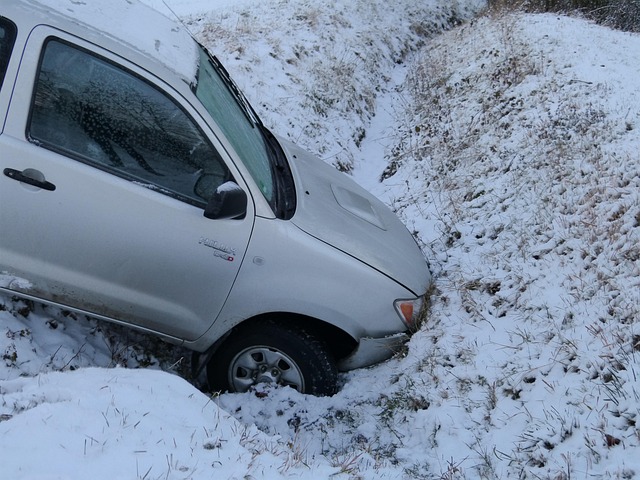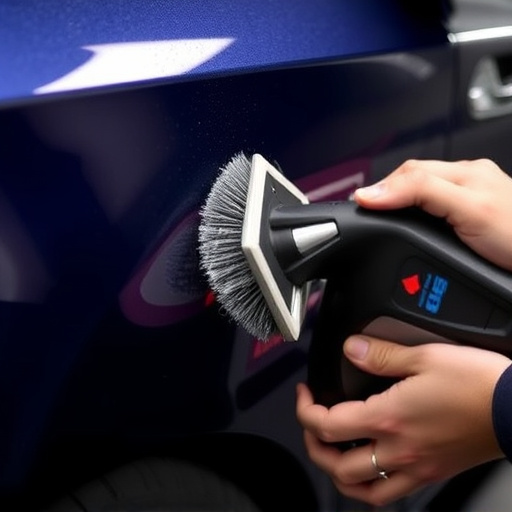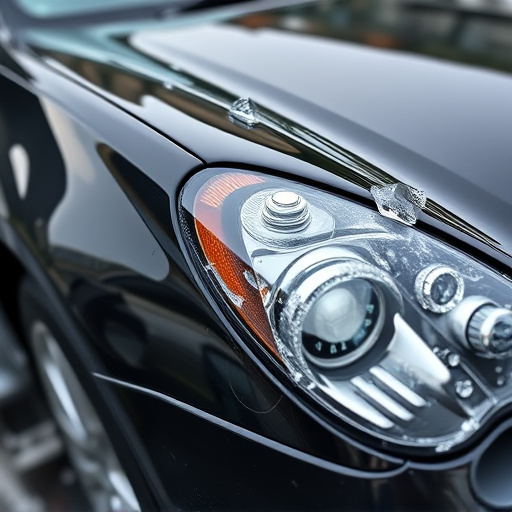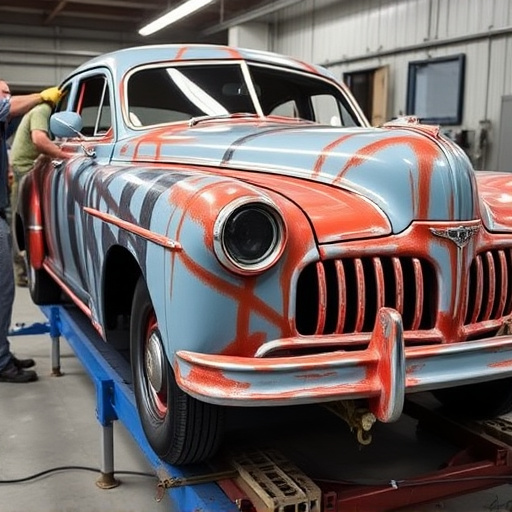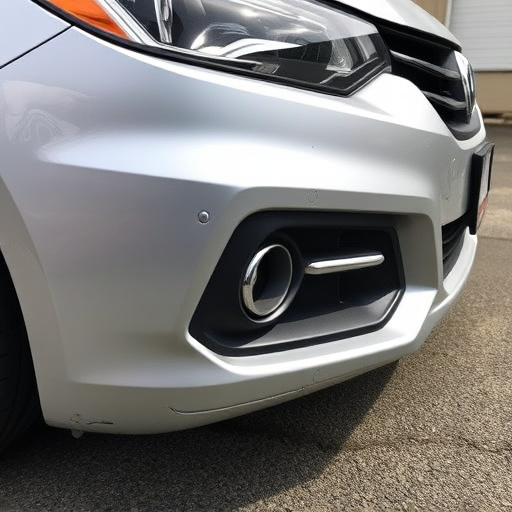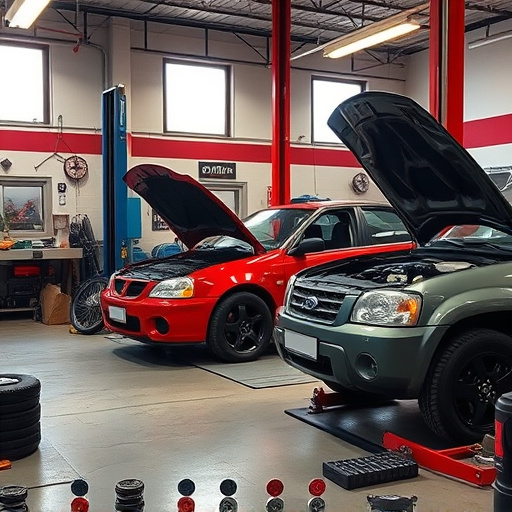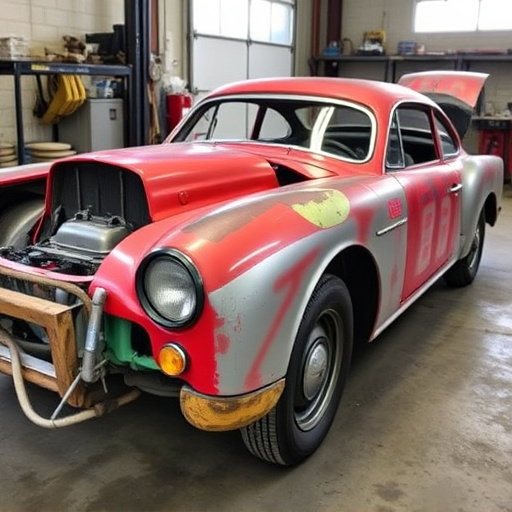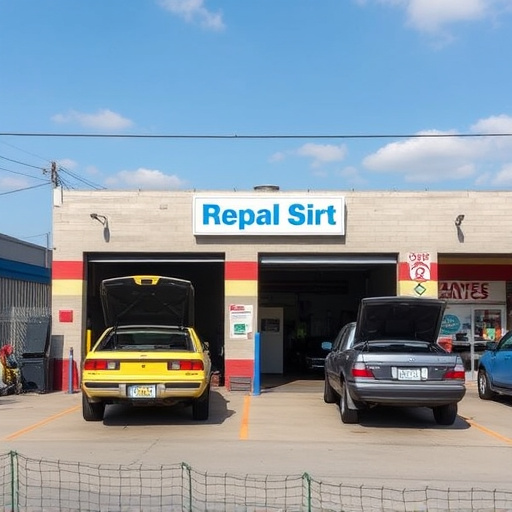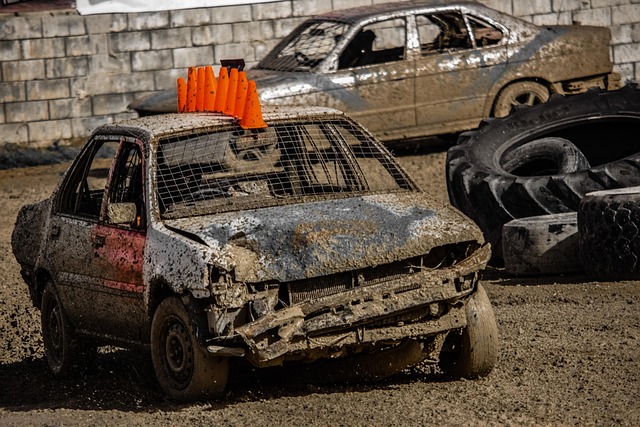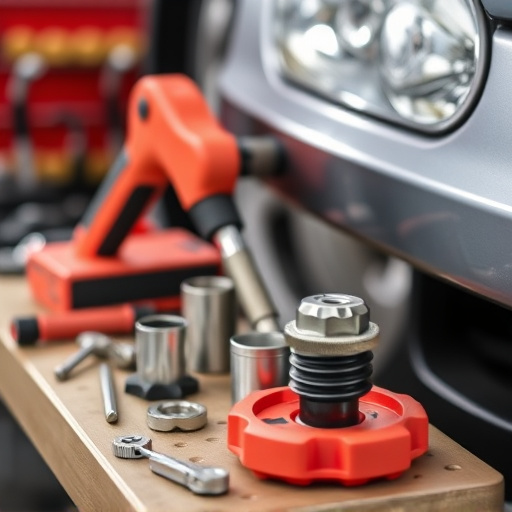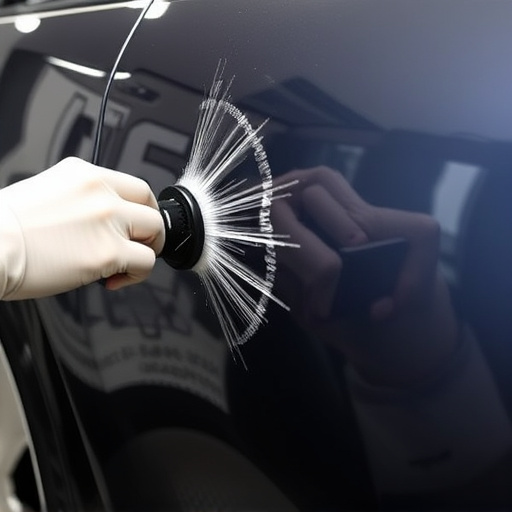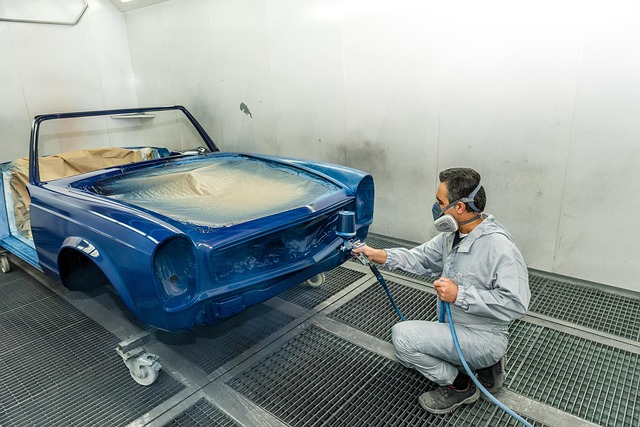Collision repair centers should prioritize understanding customer repair expectations through surveys to enhance satisfaction. By gathering insights on turnaround times, communication preferences, and desired outcomes, businesses can provide tailored services like transparent updates during repairs. This strategic approach builds a positive reputation and encourages future business, revolutionizing car collision repair with enhanced efficiency and client-centricity.
In today’s competitive market, understanding customer repair expectations is paramount for businesses aiming to deliver exceptional service. This article delves into the strategic use of surveys as a powerful tool to accurately measure and manage customer repair expectations. We explore key aspects such as designing effective survey questions, analyzing critical data, and taking actionable steps based on insights gathered. By leveraging these techniques, businesses can enhance customer satisfaction and loyalty.
- Understanding Customer Repair Expectations
- Designing Effective Survey Questions
- Analyzing and Acting on Survey Data
Understanding Customer Repair Expectations
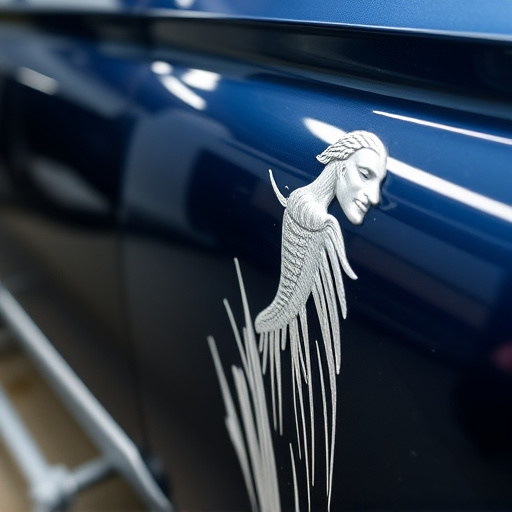
Customer repair expectations are a crucial aspect to understand in any collision repair center or car bodywork services scenario. A “fender bender” or minor accident can significantly impact a customer’s perception of quality and service speed. By gathering insights through surveys, businesses can gain valuable knowledge about what their clients truly expect during the repair process. This includes understanding the desired turnaround time, preferred communication methods, and expectations for the final outcome.
Knowing these expectations allows collision repair centers to tailor their services accordingly. For instance, customers often appreciate transparency and regular updates on their vehicle’s progress. Survey data can reveal ideal frequency of check-ins, whether it’s daily brief updates or weekly detailed reports. This information ensures that the repair center meets customer needs, fostering a positive reputation and encouraging repeat business for future car bodywork services.
Designing Effective Survey Questions
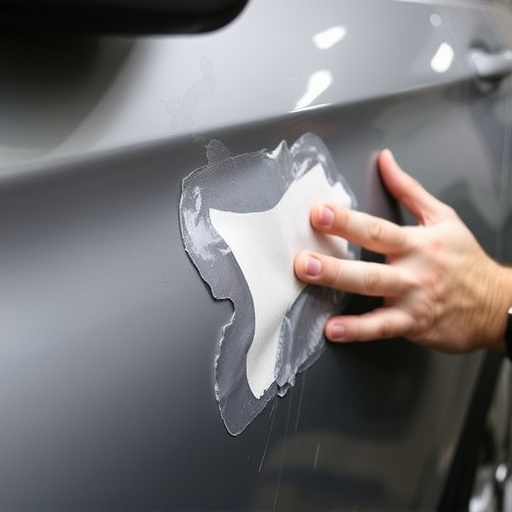
When designing survey questions to gauge customer repair expectations, clarity and specificity are key. Ask open-ended questions that encourage detailed responses about their ideal repair process and timeline for services like automotive body work, dent removal, or bumper repair. For instance, instead of asking “Are you satisfied with our repairs?” probe deeper by inquiring, “What specific aspects of the repair experience would you like to see improved?” This invites customers to share insights on areas such as communication frequency, turnaround times, and quality assurance checks.
Tailor questions to address different stages of the repair process. For example, when inquiring about customer expectations for dent removal, consider asking, “Did our team keep you informed throughout each step of the dent removal process?” or “How do you prefer to receive updates on your bumper repair’s progress?” Incorporating such nuances allows for a more nuanced understanding of individual preferences and ensures that survey results accurately reflect customers’ varying needs regarding automotive body work.
Analyzing and Acting on Survey Data
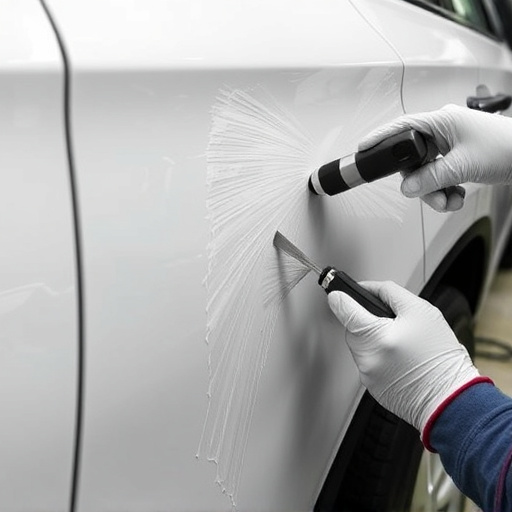
After gathering data through surveys focused on customer repair expectations, the next crucial step is analyzing and acting on that information. This involves a deep dive into the responses to identify trends, common themes, and areas where current practices might be falling short of customer expectations. For instance, if many respondents express dissatisfaction with communication during car collision repair processes, it’s essential to investigate further and implement changes to enhance transparency and timely updates.
Actionable insights derived from survey data can significantly drive improvements in car body restoration services. This could manifest as streamlining communication protocols, refining estimated repair timelines, or enhancing training for staff involved in vehicle bodywork repairs. By systematically addressing the needs and concerns revealed through surveys, businesses can not only meet but exceed customer expectations, fostering loyalty and positive word-of-mouth recommendations in the competitive market of car collision repair services.
Surveys are a powerful tool for gauging customer repair expectations, offering businesses valuable insights into client preferences and needs. By understanding these expectations through well-designed questions, companies can enhance service quality and customer satisfaction. Analyzing survey data enables informed decision-making, leading to improved repair processes and better overall customer experiences. This strategic approach ensures businesses meet and exceed expectations, fostering loyalty and positive word-of-mouth in the competitive market.

